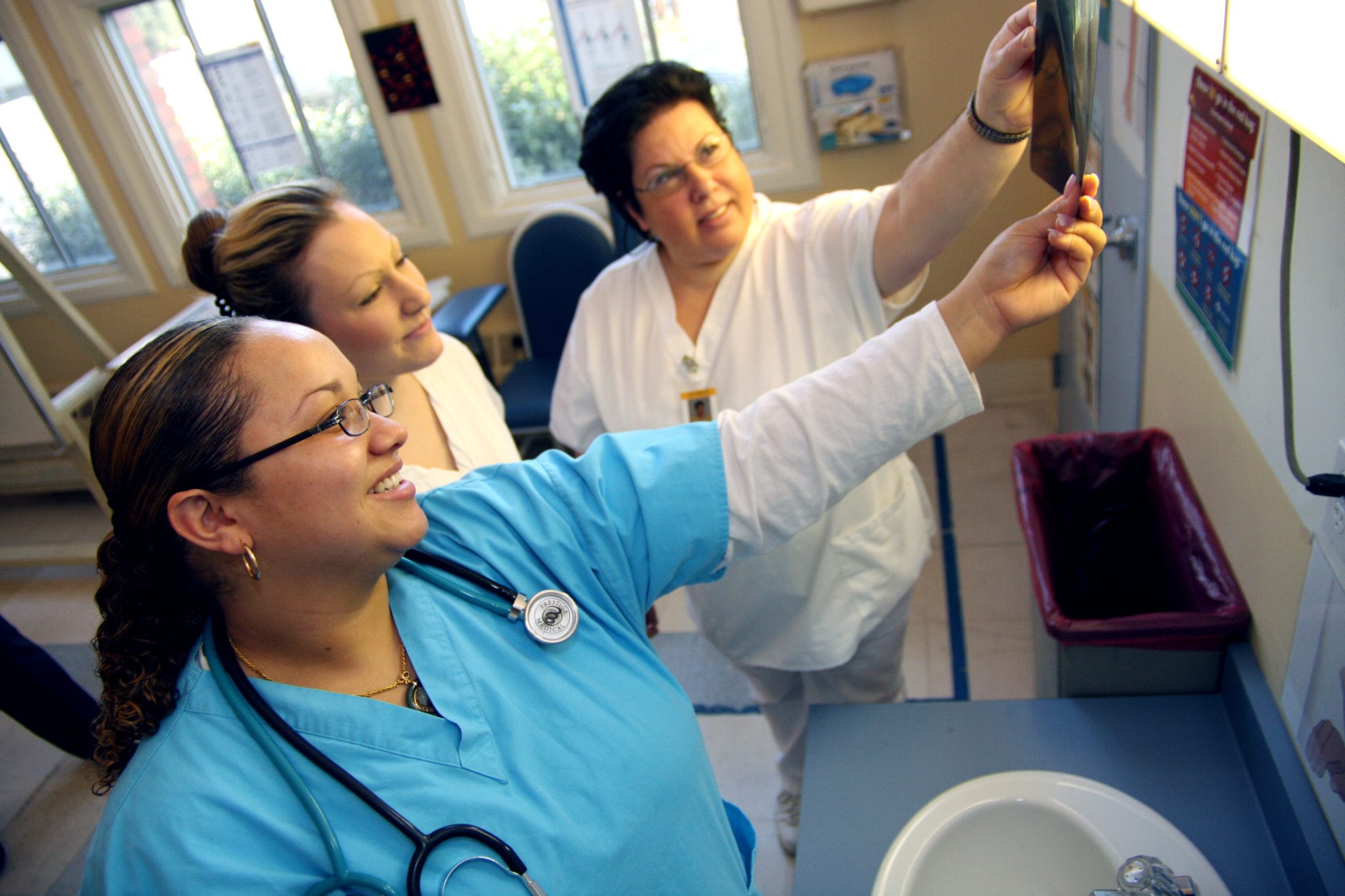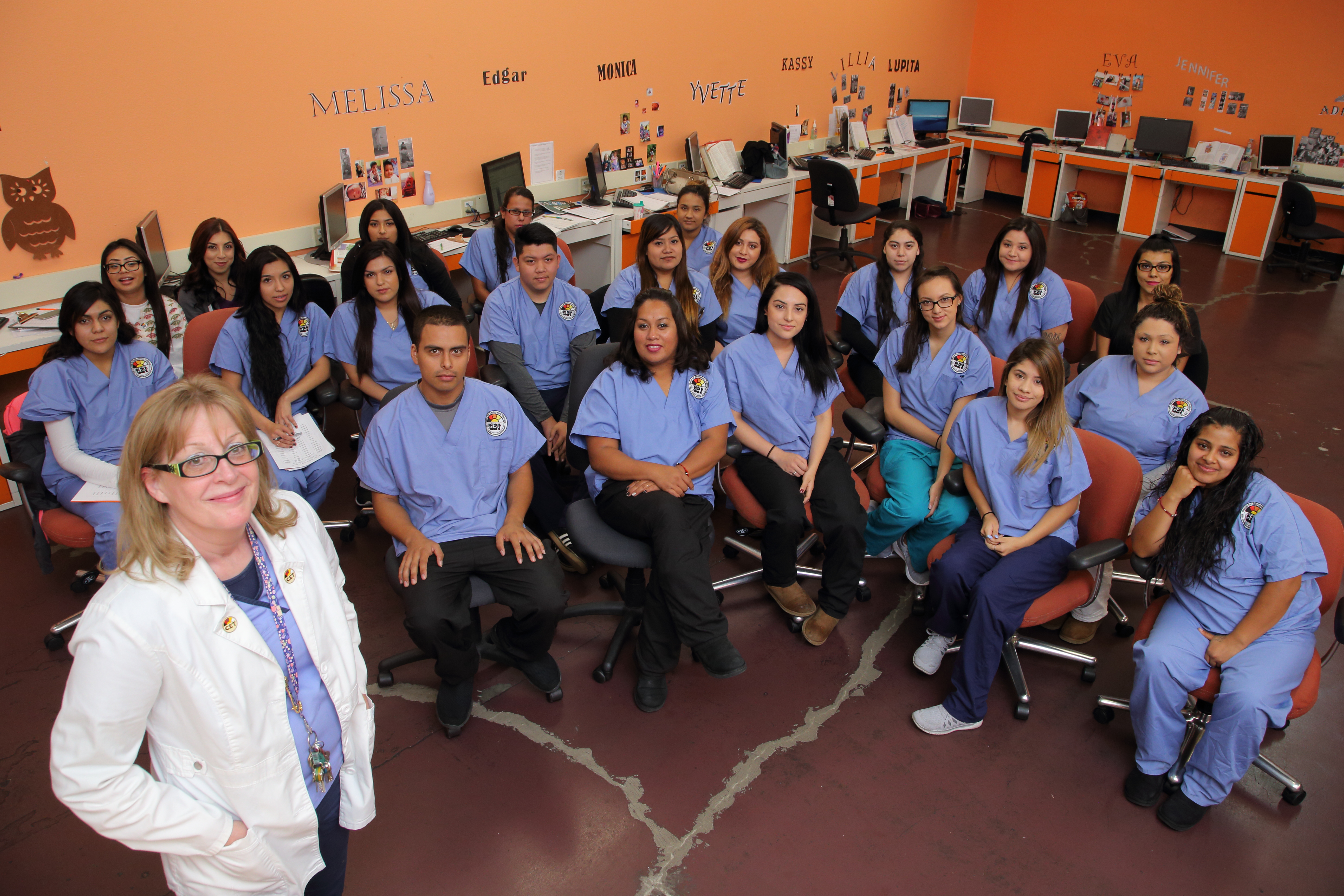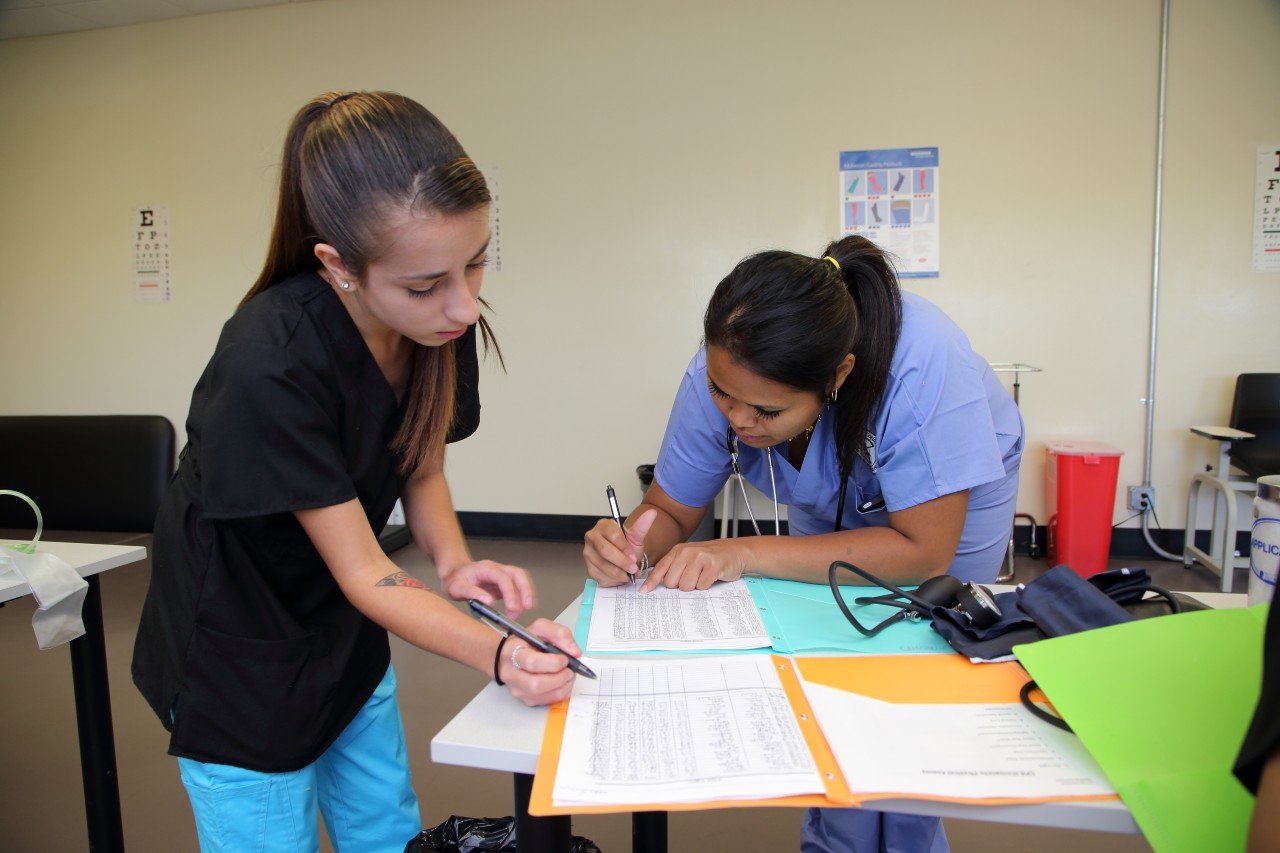Becoming a Registered Medical Assistant - CET
Are you considering becoming a Registered Medical Assistant? You’re making a wise choice. It’s an incredibly fast-growing profession. With the large...
3 min read
 Amy Lawrence
:
Aug 12, 2020 9:00:00 PM
Amy Lawrence
:
Aug 12, 2020 9:00:00 PM

According to the Bureau of Labor Statistics, the employment of medical assistants is expected to grow 23 percent between 2018 and 2028 in the United States—far above the average for all occupations.
This field is preparing for a major employment boom in the next eight years, and medical assistants will be in high demand.
Why is this profession taking off so rapidly?
One reason is the increased age of the Baby Boomer generation. As Baby Boomers get older and require more care, doctors are preparing to manage the increase in demand for preventative care. This care usually is provided by physicians, who are hiring more medical assistants to perform routine administrative and clinical duties so that physicians can see more patients.
And to top it off, Boomer-aged physicians are beginning to retire. There are fewer doctors, and they need qualified healthcare workers who can make their jobs easier so they can see more patients.
The medical assistant profession is expecting a lot of change in the future and not just in the number of available positions. What kinds of changes can you expect to see in the healthcare industry, and why are medical assistants such a critical part of these changes?
Let’s take a look.
In addition to the large population of aging Baby Boomers needing medical care, there are several other reasons that physicians are expecting to see more patients in the coming years. Physicians will need to see more patients more efficiently, and these physicians are hiring medical assistants to see all of these patients.
Why are we expecting a rise in the number of patients who need care?
Chronic diseases that require medical attention are on the rise. In 2015, 133 million Americans were living with one chronic illness. Today in 2020, that number is 157 million Americans. Also, the number of Americans who have more than one chronic illness has increased from 63 million people in 2005 to 81 million people in 2020.
The reasons for this spike in chronic diseases? It’s not just obesity, though that seems to be a factor. Besides being overweight, a poor diet and higher poverty rates appear to play into this increase.
Patients with chronic conditions need additional appointments to stay well. They need to see their doctors more often, and more patients with more appointments make for very busy doctors. With so many Americans requiring medical care, physicians need to keep up. To do so, they are hiring more medical assistants to help them.
Another reason that the healthcare industry is about to require more medical assistants than ever before? Advancements in medical technology are streamlining care and getting medical assistants more involved in healthcare in new ways.
For quite some time, medical assistants have been working in medical offices using computers and printers to log and record patient information to help physicians. But advancements in medicine mean that medical assistants will continue to use more technology in clinical settings—things like hematology analyzers, urinalysis machines and microscopes—to perform tests for physicians.
Gone are the days of needing to use outdated, tedious methods to perform tests. With these advancements in technology, medical assistants are in higher demand and working in ways they never have before.
As healthcare demands grow and doctors become busier, medical assistants are a vital part of the healthcare system.
Doctors are stretched thin. Public health officials are looking for ways to improve the quality of medicine for patients while doctors are busy and Baby Boomers continue to need more care. This creates a bit of a staffing crisis.
To solve this problem, many healthcare providers are adopting new staffing models. Nurses are accepting greater responsibilities working with patients to assist doctors, and medical assistants are assuming many of the nurses’ duties in clinical and administrative capacities. These medical assistants are bridging this gap and taking on tasks that require skilled care.
Interested in stepping into a growing field of medical professionals and contributing to the health of patients in your community?
At the Center for Employment Training (CET), we have a hands-on program to teach you the tools you need to have a successful career in the medical field. From recording vital signs and preparing patients for exams to running tests and drawing blood, we’ll work with you to get you ready for a new career in an average of eight to nine months.
Additionally, our program will get you ready to test for your registered medical assistant (RMA) certification. This will demonstrate to future employers that you have the skills you need to work as a medical assistant.
Are you ready to join a rewarding career path where you really can make a difference? At CET you can start the day after you enroll so you don’t have to wait another moment to find your next career.
Medical assistants are working in new and exciting ways. Learn the skills you need to be one of them. Contact us today to get started!

Are you considering becoming a Registered Medical Assistant? You’re making a wise choice. It’s an incredibly fast-growing profession. With the large...

Medical assistants play a vital role in healthcare settings, working alongside physicians and nurses to ensure the smooth operation of clinics,...

According to the US Bureau of Labor Statistics employment of Medical Assistants is projected to grow from 2019 to 2029 by almost 20%. Compared to...